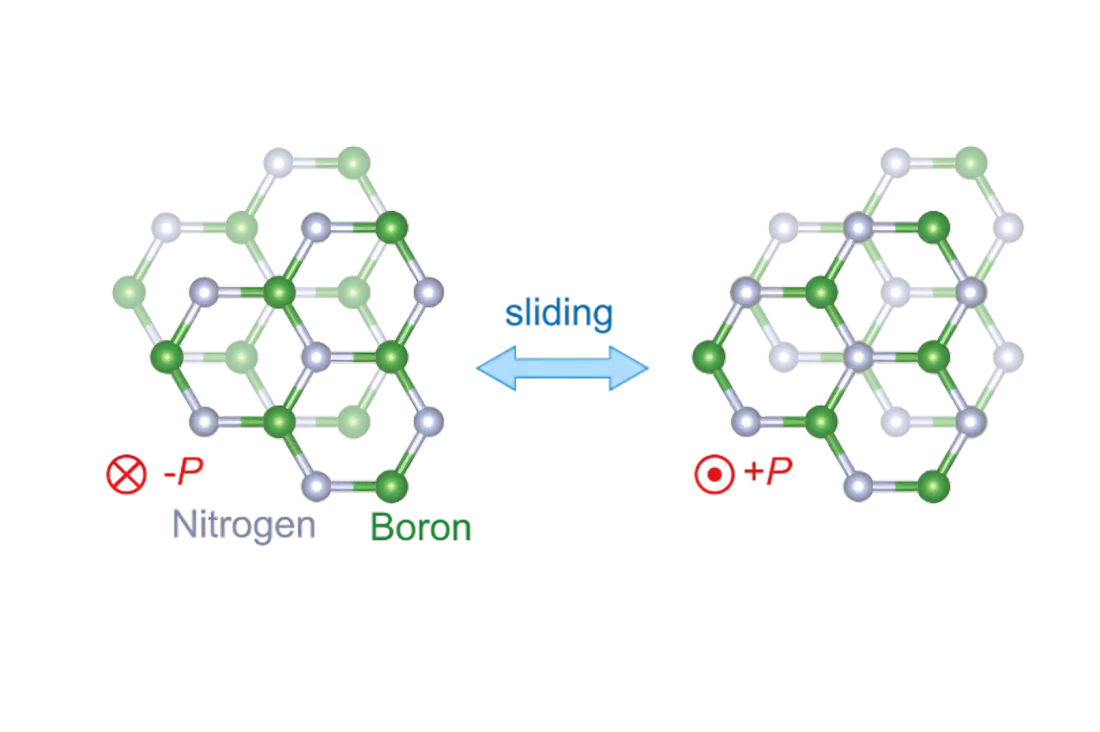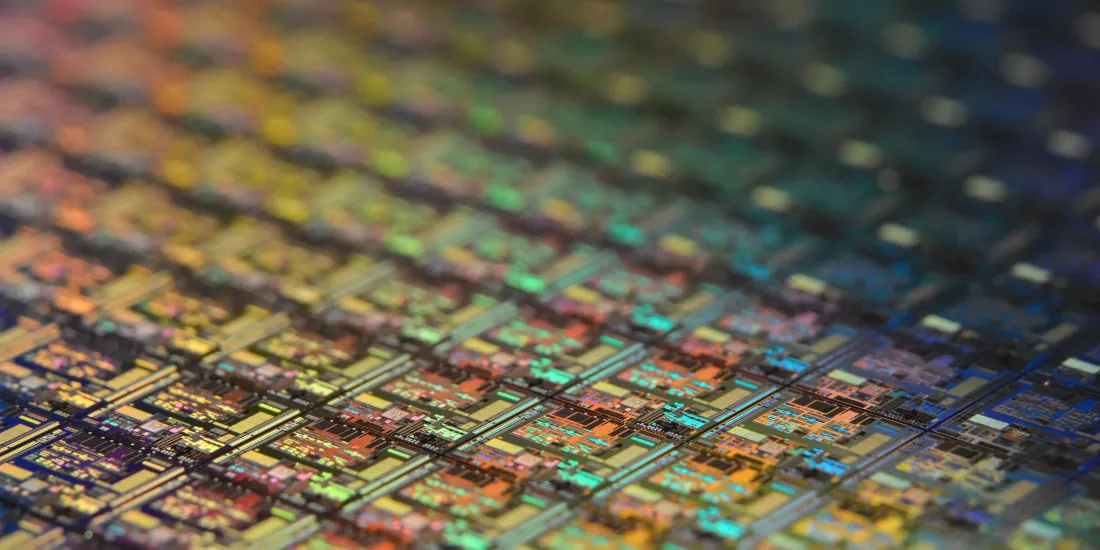The researchers say it "could change the world"
In a nutshell: Back in 2021, a team from the Massachusetts Institute of Technology made waves by creating an entirely new type of ferroelectric material. Now, those same researchers have one-upped themselves by using that substance to build a transistor that utterly smokes the conventional chips powering today's gadgets – with nanosecond switching speeds and incredible durability.
The transistor's killer performance stems from the unique properties of the 2021 ferroelectric material, which is composed of razor-thin layers of boron nitride stacked parallel to each other.
The broad definition of a ferroelectric material is that it's a special crystal that can spontaneously generate positive and negative charges within itself, and these charges can be flipped by applying an electric field.
However, the new material seems to behave a bit differently. When an electric field is applied to it, the parallel layers slightly shift positions, nudging the boron and nitrogen atoms just a hair's breadth. That leads to an extreme makeover in the material's electronic properties. The researchers explain it's like pressing your hands together, then sliding one above the other.
"So the miracle is that by sliding the two layers a few angstroms, you end up with radically different electronics," lead co-author of the paper Raymond Ashoori said, putting the tiny displacement into perspective – an angstrom is just one-billionth of a meter.

The resultant transistor exhibits several game-changing properties. For starters, it can rapidly flip between positive and negative charges (the 1s and 0s of digital data) at nanosecond speeds. Rapid switching is key for high-performance computing and data processing.
Moreover, because "nothing wears out in the sliding," Ashoori notes the transistor could theoretically switch over 100 billion times without degrading. That's unlike conventional flash memory, which slowly degrades from repetitive write/erase cycles.
Since the ferroelectric material is remarkably thin (measuring just billionths of a meter), it could enable much denser computer memory storage. This characteristic also means that the transistors require lower operating voltages since the switching voltage scales with thickness, enabling more energy-efficient transistors overall.
The team has only developed a single prototype transistor in the lab so far. But according to Pablo Jarillo-Herrero, a co-lead of the research, "in several aspects, its properties already meet or exceed industry standards" for current ferroelectric transistors.
Ashoori appears to be quite enthusiastic about the breakthrough, telling MIT News, "When I think of my whole career in physics, this is the work that I think 10 to 20 years from now could change the world."
That's a bold claim, but if this transistor lives up to the massive potential they're touting, he may be onto something. The full paper can be found in a recent issue of Science.
- Adenman, Mutton and Karlston
-

 3
3



Recommended Comments
There are no comments to display.
Join the conversation
You can post now and register later. If you have an account, sign in now to post with your account.
Note: Your post will require moderator approval before it will be visible.